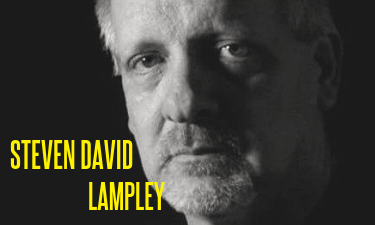Everybody lies. . .
. . .and Steven David Lampley can teach you how to catch them
The average person tells about four significant lies per day. Steven David Lampley can spot nearly all of them, and now he’s coming to Chicago’s Thalia Hall to share his secrets - as many as he can. “Police academy didn’t teach me any of this,” he says. “I learned on my own. While interviewing witnesses or suspects, I paid attention to their mannerisms and body language and my own intuition.”
CrimeCon: On The Run brings together three of the most popular speakers from CrimeCon 2018. Lampley will join crime scene reconstructionist Karen Smith and cold case investigator Joe Giacalone. Together, the three will take the audience through the entire lifecycle of an investigation. “In theory, once Karen investigates the crime scene, then I come in and interview the witnesses, victims, and suspects,” says Lampley.
It is somewhat easy to learn the basics of deception detection. A simple Google search reveals no shortage of video quizzes challenging viewers to identify mannerisms and indicators of deception, but Lampley says identifying the lie is half the battle. “You also need to understand how to assess the lie,” he explains. “Two different people can say “I didn’t kill him” and you can tell one is lying versus the other based on how you assess them. That’s the part that’s difficult to teach, especially in an hour.”
Lampley packs a lot of information into that hour, though. He’ll begin with a simple test: watch the video and spot the lies. “From there, we’ll talk about the indicators of deception, microexpressions, and the different types of lies.” At the end of Lampley’s presentation, the audience will watch the same video test again to see how much they’ve learned.
One easy and practical way to implement the new skills you’ll learn from Lampley’s talk: practice catching your kids when they’re fibbing. “We start lying as infants; babies cry to get whatever it is that they want,” says Lampley. “Young kids are easy. They look down when they lie.” By the teen years, though, they’ve learned a lot: “Be suspicious any time your teenager gives you way more detail than you asked for. The longer, more elaborate the story, the more likely they’re lying. They’re trying to convince, not convey information.”
MORE FROM THE CRIMECON BLOG




